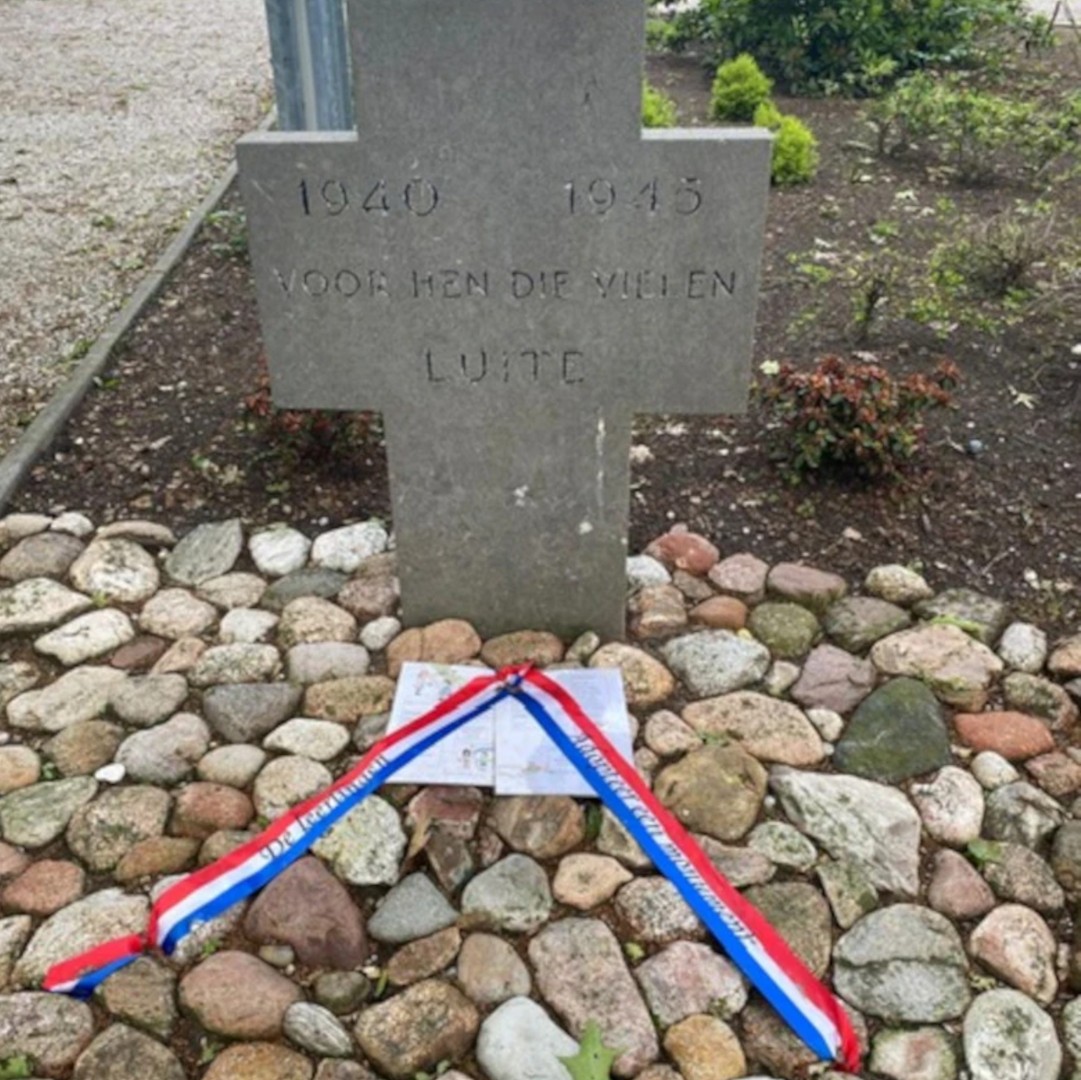Luite Middendorp was born on 8 March 1924 in Terband and grew up in Donkerbroek, where he lived with his parents on Herenwal. During the occupation, the family showed great courage by hiding a Jewish girl, Henny Waas, in their home during May 1943, protecting her from persecution by the Nazis.
To escape compulsory labour in Germany, known as Arbeitseinsatz, Luite went into hiding himself in the summer of 1943. He lived in hiding until 24 June 1944, when things went wrong. On that day, Luite happened to be at home because of a serious leg infection. Due to betrayal – someone had sent a letter to report him and others – a raid took place in Donkerbroek. Landwachters, collaborators who acted as a kind of auxiliary police for the occupiers, arrested Luite, his father and Henny Waas (11 years old).
From that moment on, a long and difficult ordeal began. Luite was first imprisoned in the House of Detention in Leeuwarden. This was followed by deportation to Camp Amersfoort, a transit camp where prisoners were often mistreated and abused. From there, Luite was transferred to the Neuengamme concentration camp near Hamburg, and eventually to the notorious Bergen-Belsen camp.
The conditions in Bergen-Belsen were terrible: there was hardly any food, diseases spread rapidly and medical care was virtually non-existent. Exhaustion, hunger and disease claimed many victims every day. Luite, only 21 years old, did not survive the hardships. On 14 April 1945, one day after Donkerbroek was liberated, he died in Bergen-Belsen, exhausted and weakened.
A day later, Bergen-Belsen was liberated by the British. They found mass graves and thousands of unburied bodies, as well as approximately 60,000 survivors, of whom about 14,000 died in the following days and weeks, partly as a result of malnutrition and dehydration.
It took more than a year before Luite's parents received official confirmation of his death.
Despite the tragic events, Henny Waas managed to survive the war. She had been deported via Camp Westerbork to the concentration and transit camp Theresienstadt. On 8 May 1945, Henny was liberated by the Red Army.
In memory of Luite and as a tribute to his courage and sacrifice, a monument has been erected at the cemetery in Donkerbroek. This monument was created on the initiative of the Oranjevereniging and Dorpsbelang Donkerbroek and reminds us of the price many have paid for our freedom.
